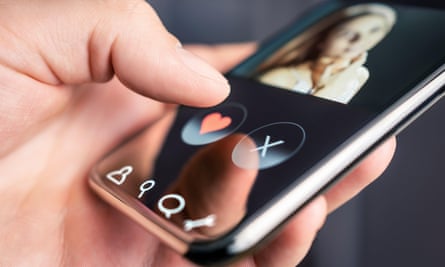From joining dating apps to buying contraception and sex toys, the return of physical dating has prompted Britons to get ready for what is being billed as a summer of love.
Strict rules on socialising have now been relaxed in England and Scotland, so that people from different households are able to mix indoors or even stay over. The new freedoms have caused sales of condoms, lubricants and toys to soar at Superdrug ahead of what the health and beauty chain says will be a “sexplosion” of activity.
Other companies, such as L’Oréal, the world’s biggest cosmetics group, have already suggested the misery of the pandemic will give way to another “roaring 20s” – a reference to the hedonism of the 1920s, following the first world war and 1918 flu pandemic.
Michael Henry, Superdrug’s healthcare director, says millions of people had “missed sexual connections during lockdown”. “We’re expecting a significant surge in demand for sexual health and sexual pleasure products as restrictions have been eased.”
Last summer, the manufacturer of Durex says, condom sales jumped by 10% over the summer months when a respite from coronavirus restrictions enabled people to rekindle their sex lives. The opposite had been true in the spring, when sales slumped as lockdowns reduced the “number of intimate occasions” available to single people.

The desire to find a new partner is also mainfested in the numbers of dating companies that were quick to adapt to pandemic-era dating, introducing video chat features that enabled people to go on virtual dates.
Match Group, the company behind dating apps such as Tinder, Plenty of Fish and Hinge, has pencilled in growth of more than 20% going into the summer. It has encouraged new sign-ups with giveaways such as home Covid tests, with the level of interest from consumers leading its management to state they were “looking forward to a summer of love”.
Justin McLeod, who runs the Hinge app, which specifically targets people seeking a relationship, says its members went on 10% more dates in April than in March, with the pace expected to fasten in May. “It feels as if there’s this release happening now after a pretty hard winter,” he told the Guardian.
Lovehoney, the online sex toy retailer, says its sales had remained strong throughout the lockdown as couples made the most of the extra time together. Nonetheless, its research showed sexual activity had declined slightly because so many couples were being kept apart by restrictions, particularly young people who had just started dating and did not live together.
With hugging and more intimate contact still novel in England and Scotland, and on the horizon in Wales and Northern Ireland, it was still “early days”, says Debbie Bond, Lovehoney’s chief commercial officer. However, she is confident that the return of physical dating will have a positive impact on sales over the summer: “People have been stuck at home for over a year and there will be a big increase in sexual activity.”
But even with physical meetings possible, a poll of users by the dating app Bumble found that over one in three still planned to continue going on virtual dates with people they had matched with. Over the lockdown the app recorded an increase in video calls in the UK of more than 40%, with the average session lasting around half an hour.
But after such a long break and lots of time to think, some Britons say their attitudes to dating have been altered by the pandemic. Sarah Morris, from Glasgow, told the Guardian she used to go on lots of dates, but was now “more cautious and picky”. “This pandemic has made me realise I don’t have to be in a relationship to be happy,” she says. “I’m happier being around my friends, rather than trying to get to know a stranger I met on an app.”
Another reader, Helen, from Guildford in Surrey, says the pandemic had made her appreciate being self-sufficient. “The awkward small talk, the need to present an acceptable entry-level version of yourself to a stranger, the expectation to change your body or routine for another person’s needs? None of it appeals to me any more.”
